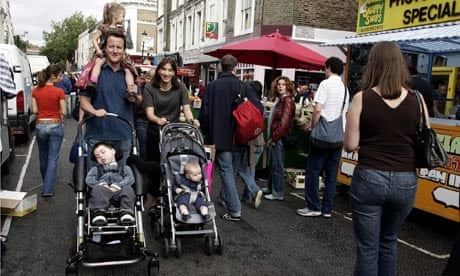Hostility towards those on disability benefits has been on the rise this week, evidenced by the reports of increased public abuse towards the disabled, and the outcry regarding the lottery-winning couple who still claim disability benefits. These outpourings of venom betray an ignorance about what any disabled person goes through on a daily basis – loss of privacy, independence and dignity, for example – as well as a total inconsistency in views on social welfare. Dividing disabled people into "deserving and undeserving" based upon wealth or lifestyle smacks of the moralistic 19th century attitude to the poor, where only those suitably behaved were deemed worthy of state help.
Before anyone assumes I'm simply an armchair commentator, it's worth mentioning that I'm an experienced carer who has worked with disabled people for six years. I've cared for an individual paralysed from the neck down who often went without heating to save money, and who sat alone for 18 hours a day because six hours' care was all their benefits would buy them. I've also cared for a paralysed person who received a generous settlement after being injured in an accident, lived in a huge house with 24-hour care, and spent much of their spare cash on gambling.
One of these individuals may sound much more "deserving" of state help than the other, but as disability benefits are based on physical need, not financial status, both are equally entitled. Whatever I feel about David Cameron, I accept that, when his disabled son, Ivan, was alive, Cameron had as much right to claim DLA for his son as any other parent of a severely ill child. However obnoxious a care client may be – and yes folks, there are those who shout, throw things and call you "fucking useless" – I accept that they deserve my care by virtue of their disability, not their personality, or the state of their bank balance.
It would be so easy to allow personal judgments of how people live to dictate who gets what. Why should the elderly couple with a five-bedroom house and six-figure savings receive the same help as the lone pensioner living in a damp bungalow with mould on the walls (both genuine examples of clients I have supported)?
The answer is because disability benefits aren't based upon what you've got, they're based on what you have to go through. In this case, both sets of pensioners needed help dressing, toileting, eating and taking medication, and both therefore had the right to support. Just as we do not begrudge rich people the right to use the NHS or send their children to state schools, so should the right to disability benefit extend to all who experience the tiring and often degrading process of a serious impairment. Having your bowels evacuated by hand is unpleasant and demeaning however rich you are.
It can be hard to support this belief. When you're a carer who sees perfectly pleasant clients scraping by, and obnoxious clients living in luxury, you do wish you could redistribute resources. However, I accept that is not how our society works, nor is it a desirable state of affairs. Our health system does not refuse treatment to those who have brought upon themselves their illnesses through smoking or alcohol abuse, nor does it withhold sexually transmitted disease treatment from those who fail to use protection. Welfare has to operate from behind a "veil of ignorance", viewing us as all as equally deserving, otherwise it can never be distributed justly.
